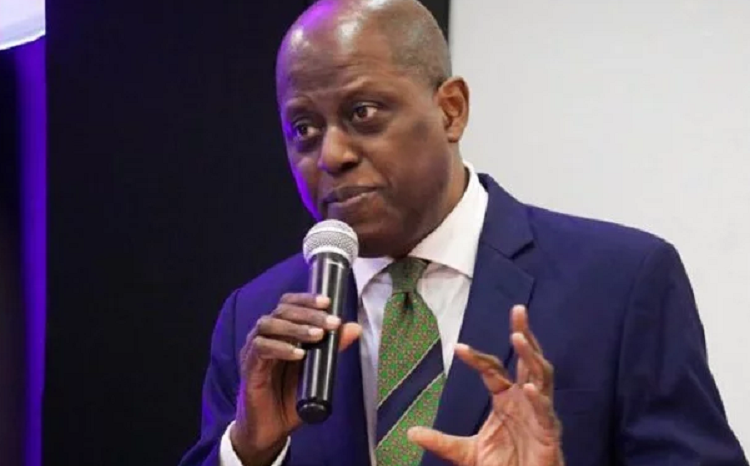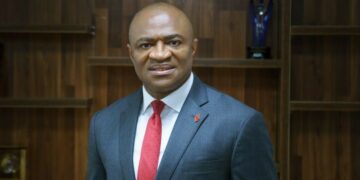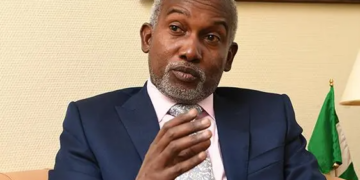Financial experts and civil rights activists have called on the Central Bank of Nigeria (CBN) and the Ministry of Finance to release the exact figures of Ways and Means leading the apex bank advanced to the federal government during the administration of former president Muhammadu Buhari to end the controversy surrounding them.
Ways and Means is a loan facility the Central Bank of Nigeria (CBN) uses to cover the federal government’s budget shortfalls. Although CBN regulations limit these advances to five per cent of the previous year’s revenue, this rule has frequently been violated.
Different figures have emerged regarding the Ways and Means advances the CBN provided President Muhammadu Buhari’s administration. Since last year, the government has quoted various statistics, ranging from N7 trillion to N22 trillion to N26.7 trillion to N30 trillion, a situation linked to corruption and a lack of due process and coordination among the various government agencies.
The experts said it is important for the CBN and the Ministry of Finance, which have been charged with releasing the actual Ways and Means Figure, to come out clear on the matter. In an interview with LEADERSHIP yesterday, Professor of Law and Developmental Economics Tayo Bello stated that the primary source of information must be the CBN. He said, “They are the ones who released the fund. They gave the money to the government, and whatever they say should be the figure we should rely on.”
Noting that Ways and Means is a way of financing government deficits and which one way or the other results in macroeconomic instability, he said, “At times it can lead to inflation and sometimes high exchange rate or a combination of the two because of the excessive liquidity injected into the economy.
The government can provide an accurate figure through the central bank and the Ministry of Finance. If they don’t have proper documentation or a proper record of figures, it will affect how they tackle inflation and macroeconomic stability.
“There must be an accurate figure, but in Nigeria, as we are, anytime the government wants to release anything, the overriding interest of the public does not matter; rather, the political interest. So, they always find a way to say that one regime created the problem.”
Commenting, Nigerian civil rights activist and the executive director of the Civil Society Legislative
Advocacy Centre, Auwal Musa Rafsanjani, noted that the divergent figures provided by the government agencies show that more coordination is needed.”
According to him, part of the reason for the disparity in financial figures “is the lack of accurate and credible data sources that can be relied on. So, everyone comes with their data. There is no information sharing or coordination, and in situations like this, disparity in data will continue to be the norm. He said, “Ideally, we are supposed to have a system where one of the government agencies gives a figure, and it will be the same with all other government agencies from CBN to FIRS, DMO, NBS and all other economic management teams. However, we have continued to see this because of the inconsistency and need for more accurate and credible data sources.
“Secondly, when there is an abuse of due process in budgetary preparation and approval, we see inconsistencies like this. Also, we see things like this because financial regulation is not adhered to.”
He furthered that the prevalence of corruption in the system and inconsistencies in data will continue to be the norm. “Corruption in the system, in our public institutions, has brought about these kinds of inconsistencies, and when the presidency does not necessarily have to differ to the national assembly for budgetary approval, we see things like this. So, the absence of effective oversight by the national assembly has also resulted in this disorganisation and inaccuracy and absence of credible data and information on the financial information in Nigeria,” he said.
An economist, Ahmed Salau, said that severing the direct link between the Central Bank of Nigeria and government financing is essential for promoting fiscal discipline, reducing inflationary risks, and encouraging prudent public spending. “This shift would also bolster investor confidence, as demonstrated in El Salvador, signalling a commitment to sound economic management crucial for attracting foreign direct investment into Nigeria,” he said.
Documents obtained by TheCable revealed that, as of December 19, 2022, the total outstanding overdraft owed by the federal government in its “treasury sub-treasury account” at the CBN amounted to N22,719,703,774,306.90. This included N7,531,819,048,929.66 classified as Ways and Means, N13,725,408,432,557.50 representing the total transaction costs on federal government securities in the capital market, and N4,618,829,652,047.41 in interest charges on the overdraft facility. These loans were not accounted for in the federal government’s debt stock until December 2022, when the Buhari administration formally requested the National Assembly to include them.
It will be recalled that in 2023, the Muhammad Buhari-led government sought the approval of the National Assembly for the Securitization of the N22.7 trillion Ways and Means Advances extended to the federal government by the Central Bank of Nigeria (CBN).
However, several government agencies released divergent figures following President Bola Ahmed Tinubu’s assumption of office and Godwin Emefiele’s exit from the CBN leadership.
Report by Jim Obazee, the special investigator probing the activities of the apex bank, alleging that the Ways and Means had been padded by the then CBN governor and former Minister of Finance, Dr Zainab Ahmed, who had jointly signed advice to the former President Mohammadu Buhari to restructure Ways and Means of N23.719 trillion despite presenting a different figure to the National Assembly, had quoted the government borrowing from the CBN at N26.627 trillion as at June 8, 2023.
Earlier this year, the Senate, presided over by Deputy Senate President Barau Jibirin, constituted a nine-member ad hoc committee to probe the disbursement and usage of the N30 trillion Ways and Means loan obtained by the administration of former President Muhammadu Buhari from the Central Bank of Nigeria (CBN).
According to Jibrin, the Central Bank of Nigeria’s Ways and Means, which provides direct lending to the federal government of Nigeria, has caused unprecedented liquidity in the economy and the current inflationary pressure.
“The financial obligation to the CBN now stands at N30 trillion. The inability to repay this temporary accommodation by the federal government of Nigeria led to the regularisation of a 40-year loan at nine per cent interest per annum,” he stated.
We’ve got the edge. Get real-time reports, breaking scoops, and exclusive angles delivered straight to your phone. Don’t settle for stale news. Join LEADERSHIP NEWS on WhatsApp for 24/7 updates →
Join Our WhatsApp Channel










